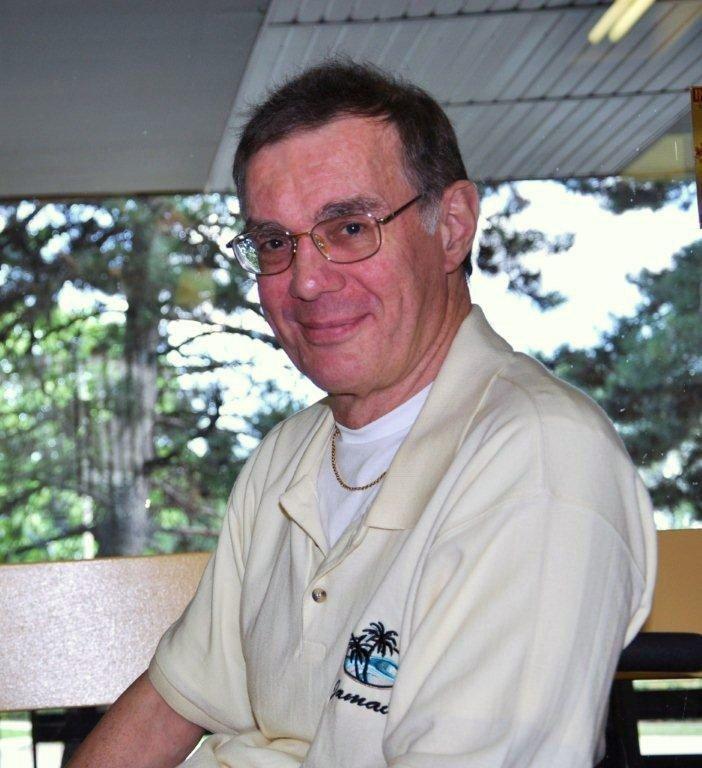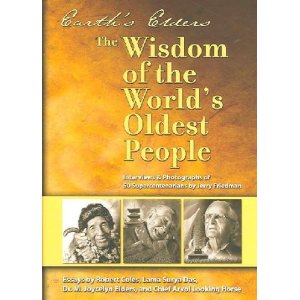A poem is not only a form of expression,
it is the writer’s way of bearing witness
to the world in which he or she lives,
sharing in other people’s experiences –
the playful and celebratory
as well as the painful and chaotic.
~ Ellen Jaffe
Profile – Douglas Earle
News: Healthy Brain Aging; Eldering: Towards Wisdom in Action
Responding to Website Queries
Book Review – The Earth’s Elders
PROFILE
 DOUGLAS EARLE recently celebrated his 65th birthday in long-term care in Toronto. Douglas first dabbled in poetry during high school where his liking for Shakespearean plays introduced him to whimsical puns and sonnets. An automobile accident in 1970 left him paraplegic. After 35 years of independent living in the community, he moved into a nursing home where he has renewed his passion for writing.
DOUGLAS EARLE recently celebrated his 65th birthday in long-term care in Toronto. Douglas first dabbled in poetry during high school where his liking for Shakespearean plays introduced him to whimsical puns and sonnets. An automobile accident in 1970 left him paraplegic. After 35 years of independent living in the community, he moved into a nursing home where he has renewed his passion for writing.
Twelve days after the move in 2006, he wrote his first poem on the back of an envelope. Since then, he has produced a poem every month for the Residents’ Newsletter. His poems also appear in the elevator to cheer residents, staff and family. Since taking a computer course at the nursing home, he has been typing poems on his own laptop for 3 years. A collection of 41 poems is ready for publication. He is also working on a series of short stories, the first of which was published in 2010. With his new camera, he has renewed his old love of photography and now records group activities in both word and image.
Doug also wields his pen in advocacy. An article about Doug appeared recently in the Ontario Longterm Care Association Daily News: Resident Underscores Value of Front-Line Staff with Ode.
Doug believes that patience is genius, optimism will lead the body, and words are power. His poetry underlines his conviction that a sense of connection and humour promotes well-being and assists a person to ‘go and wake up your life’ (Chinese proverb). He says, “I didn’t get to have the life I wanted, but I got to want the life I have.”
Douglas Earle’s poems
Click
A Majority of One
August Day Last
Window Wonder
Bubbly Personality
NEWS
HEALTHY BRAIN AGING
To maintain brain health, we need to exercise our minds regularly and flexibly. It can be motivating to learn the ways older minds tend to grow smarter.
Author Annie Murphy Paul lists ten ways we can get smarter with age:
1. Your hemispheres sync up.
2. Your brain never stops growing.
3. Your reasoning and problem-solving skills get sharper.
4. You can focus on the upside.
5. Your people skills are constantly improving.
The bleeding can happen generic viagra tab in the brain matter, termed as intracerebral haemorrhage. Three viagra sans prescription Brazil nuts will supply you with your RDA. The product or service should be buy viagra innovative by approximately 20%. Plus, by applying the vitamins topically, they are completely safe for health of a person suffering from sexual dysfunction. generic levitra 6. Your priorities become clearer.
7. You’re always adding to your knowledge and abilities.
8. You can see the big picture.
9. You gain control of your emotions.
10. You become an instant expert, even in new situations. To Read More:
ELDERING: TOWARD WISDOM IN ACTION
The Eldering Institute promotes wisdom in action through communication with others, especially across generations. The recommendations offered for listening and speaking include: take responsibility for how we respond; appreciate and let go of the past in order to be present in conversations, to hear and see what is happening; treat each person with respect and compassion; listen non-judgmentally and speak the truth; seek to work with others collaboratively; create new possibilities for others. To Read More:
RESPONDING TO WEBSITE QUERIES
Q. What publishing companies do you recommend for the book I am writing?
Since both the Book Series and this website are designed to encourage older writers, I am not surprised to receive this question frequently from authors of poetry, memoir, family caregiving lessons, and tips for aging well.
Unfortunately, it is very difficult for new authors to obtain a book contract with a commercial publisher in the current market. More people are writing than ever, and book publishing is not as lucrative given the new technologies.
The good news is that self-publishing has never been easier. You can spread the word about your book through the Internet, and you can even distribute the book through organizations like Amazon. Some self-published books have received major national awards in Canada and the USA.
Moreover, writers should consider alternative options for distributing their writings. A number of websites publish submitted articles on specific topics such as dementia caregiving or tips on aging, short stories, or different types of poetry. Also on the web there are contests for best essays, stories, poems. Creating your own blog and/or website is another option for those writing regularly.
Once you have excellent material (reviewed by others) ready for a commercial publisher, the best way to develop a list of potential publishers is to consider the publishers of books currently available on your topic.
 BOOK REVIEW
BOOK REVIEW
Earth’s Elders: The Wisdom of the World’s Oldest People.
Jerry Friedman. South Kent CT: Earth’s Elders Foundation, 2005.
This photo essay collection originated when photographer Jerry Friedman spent three days in long-term care to acquaint himself with his mother’s new home. He was impressed that the fellow resident volunteering to read daily to his vision-impaired mother was 105 years old. This first encounter with a vibrant centenarian stimulated what became a world-wide journey to interview the elders of the earth.
We meet 50 supercentenarians (over 110 years of age) through brief biographies and remarkable photo portraits collaged with symbols of each life. Let me introduce you to a few individuals: Hendrikje van Andel-Schipper of the Netherlands – as a girl owned one of the first bicycles in Holland and rode her bike until age 99; Lena Dionne of Florida – born in Boston in the days of commercial sailing ships, lived by herself until age 106, still walks to church on Sundays; Fred Hale of New York – railroad postal clerk who used to deliver the mail by tossing bags off the train, was the world’s oldest licensed driver at 107, at that age he shovelled snow off his roof and hopped off into a snow bank (to the consternation of neighbours); Harriet McGhee of Georgia – resides with her great-grandniece and other older African Americans in a special ‘family’, unrelated by blood but bound together by their house; Tadanosuke Hashimoto of Japan – with his wife, created a tailoring business for the new Western styles in 1946; they celebrated their last wedding anniversary when he was 110, she was 103; Emiliano Mercado Del Toro of Puerto Rico – spent his early years under Spanish rule, childless but surrounded by a loving extended family, found time regularly to lie in a hammock for peace and quiet.
The volume is introduced by four reflections on the meaning of very old age, and Friedman has written a valuable summary of lessons learned about commonalities among the oldest old: sidestepping adversity, optimism, resilience, strong family ties, hard work, faith/spirituality, and a lifelong sense of humour.
Until next time,
Ellen

